1. Explore world-class museums in Vaduz
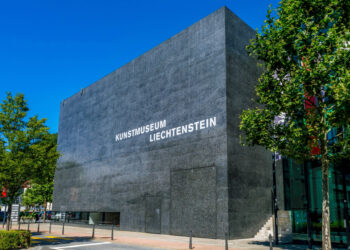
Located in Vaduz’s city centre, six world-class museums line up door-to-door, showcasing a range of traditional culture and international artwork.
Kunstmuseum Liechtenstein is unmissable – especially due to its striking black cube architecture constructed of tinted concrete and black basalt stone. Inside, six exhibition halls display contemporary and modern works, with a particular focus on three-dimensional art.
Contrasting with Kunstmuseum modern façade, the Liechtenstein NationalMuseum is housed in historic building dating back to 1438. Here, visitors can grasp an understanding of the country’s long story through art and archaeological collections. The PostalMuseum is also part of the NationalMuseum, and explores the history of the principality’s philately and postal services.
Further along museum mile, the Liechtenstein TreasureChamber displays artefacts from the Princely collection, including works of art, weapons and gifts from kings and emperors.
2. Cycle (or walk) the entire country on the Liechtenstein Trail
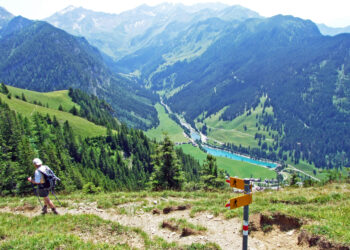
Liechtenstein may only be 25km in length, but it has managed to produce a trail that weaves more than 75km through the its 11 municipalities, making sure you get to know every inch of the country.
Although experienced hikers can complete the entire trail in one day, it’s suggested for visitors to break it down into five chunks, allowing you slow down and spend time in the various towns and villages en route.
As you might expect, scenery along the way encompasses the very best of Liechtenstein, with verdant vineyards, hilltop castles, nature reserves and mountain peaks.
The trail can either be hiked or cycled (on bike it’s 85km). Download the LIstory app to learn more about the key sites to acknowledge along the way, giving you a broader picture of the landscape and its backstory.
3. Discover 2,000 years of wine culture
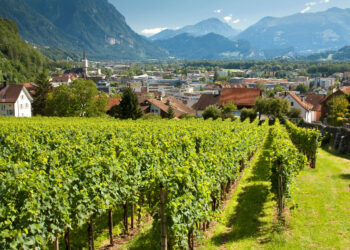
Viticulture in the principality dates back to the beginning of the pre-Christian era, meaning Liechtenstein has more than 2,000 years of wine history. When the Ancient Romans established themselves here, they attempted planting vines native to southern Europe, but these failed due to the different growing conditions. So instead, they began cultivating native, wild varieties of grape that flourished in the climate of the Rhine Valley.
Today, there are more than 100 winegrowers in Liechtenstein (including four professional growers) cultivating 20 different grapes, with Pinot Noir being the premier wine variety.
Princely Winery in Vaduz not only provides tastings and tours of its vineyard, but a chance to further understand local wine culture and heritage. But those particularly fond of a glass of red or white should plan their visit to Liechtenstein in autumn, as many wine festivals take place with opportunities to enjoy a tipple or two.
4. Hike up into the mountains
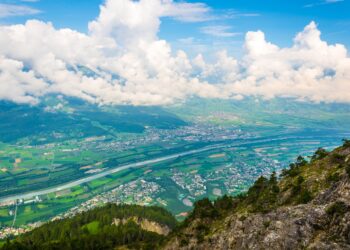
Outdoor adventurers won’t want to miss this half-day trek up into the principality’s peaks. The Fürstensteig and Three Sisters (Drei Schwestern) hike is a 12km route which takes approximately five hours to complete.
Both the Fürstensteig and Three Sisters trails date back to 1898, but today are well-marked and monitored routes. Traversing along steep paths, rocky cliffs and mountain ridges, this hike is suitable for sure-footed hikers – however, those who take on the track will be blessed with some of the principality’s most beautiful vistas.
The highest point is the ‘Kuhgrat’ ridge at 2,123 metres with a panorama across the Rätikon range as well as views across to the Swiss and Austrian mountains. You’ll also get to peer down at the villages dotting the Rhine Valley.
5. Wander the sculpture trail of Vaduz
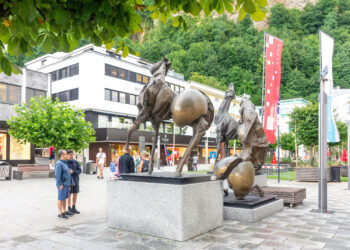
Walking around the centre of Vaduz is much like walking around an open-air museum. Giant sculptures are dotted around public spaces, making a leisurely wandering of the city become an exciting treasure hunt for art.
Today there are 28 different sculptures created by international artists to be scouted out: one of the most visible found along Museum Mile is the ‘African King’ bronze face sculpture by Gunther Stilling. Also within the centre is ‘Grande Cavallo’ by Nag Arnoldi, another piece of bronze work inspired by artists such as Marino Marini and Pablo Picasso. Another favourite is Colombian artist Fernando Botero’s ‘Reclining Woman’, depicting a characterful and naked female figure sleeping.
6. Tour Liechtenstein’s five castles
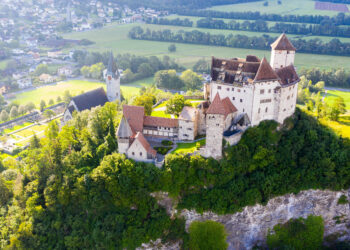
Liechtenstein is home to five castles – although only two of them remain standing in their entirety.
The most famous can be found towering over Vaduz – and has done for more than 700 years. Schloss Vaduz (Vaduz Castle) is the official residence of the Princely family and has been modified for living over the years. As it’s a residence it cannot be entered, however a 20-minute uphill climb from the centre will allow you to get a closer look.
Just an 11-minute drive away is Balzers, where the iconic Burg Gutenberg perches on a hilltop 70 metres above the village. The castle dates back to the Middle Ages, but the hill that it sits atop has provided archaeological evidence of life here during the Neolithic Period.
The principality’s other fortress ruins include the Wildschloss, Untere Burg and Obere Burg. One of the best ways to see every castle and learn their backstory via a guided cycling tour.
7. Tuck into traditional dishes in Triesenberger
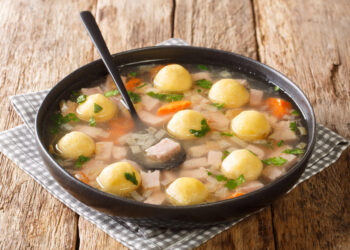
Sandwiched between Austria and Switzerland, the traditional cuisine of Liechtenstein has been influenced by these two surrounding countries.
Its national dish is käsknöpfle, a paste-like dough topped with local cheese and fried onions. Ribel is another traditional dish made from corn and with a porridge consistency. For desert, Öpfelchüachli is a sweet apple doughnut. Although international cuisine is served in most restaurants these days, traditional dishes such as the above can still be found on menus.
Vaduz has a great food scene, but the beautiful village of Triesenberger, 20 minutes away, brings to life these traditional delicacies. During its autumn food festival, local restaurants including Kainer, Kulm, Edelweiss and Guflina serve up the best of Liechtenstein on a plate.
8. See spectacular spring blooms and rare birds in Ruggeller Riet Nature Reserve
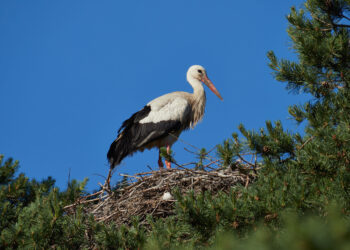
It’s not hard to escape into nature in Liechtenstein, but this 90-hectare nature reserve in the north of the principality is probably as serene as it gets.
Ruggeller Riet Nature Reserve consists of lowland moors and wetlands, which first emerged as shallow lakes thousands of years ago, when the glaciers melted into the Rhine Valley. Many rare birds can be found here, with the white stork returning to the region after successful rewilding efforts. So don’t forget your binoculars!
Visitors can admire the protected reserve on a circular walk. The best time of the year to visit being in May, when the Siberian iris blooms and transforms the landscape into a blanket of blue.
9. Uncover Liechtenstein’s ancient origins and pre-historic settlements
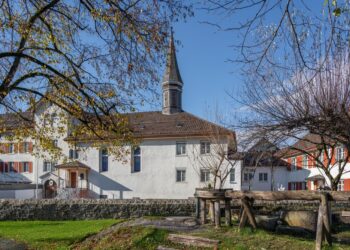
Created in the 1970s, the Eschnerberg Trail provides an active way to learn more about the fascinating historical landscape of Liechtenstein.
Linking Bendern and Schellenberg, the 15km route guides walkers along either side of the Eschnerberg mountain ridge and through forests to discover archaeological sites with signs providing handy, need-to-know information about them. The prehistoric settlements of Lutzengütle and Malanser are the two of the trail’s main areas of interest.
The trail continues through the village of Schellenberg where other highlights can be found, including the oldest standing house in the country dating back the 16th century, along with a parish church, convent and post office.
10. Enjoy Malbun’s winter landscapes
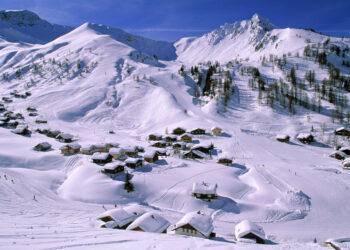
Summer hikes may get all the attention, but winter brings more high-altitude adventures. The resort town of Malbun is best known for its down-hill skiing, but it’s not the only way to enjoy Liechtenstein’s snowy peaks.
Valünatal Valley offers idyllic conditions for cross-country skiing. A 12km route is available for more those more experienced, whereas a smaller 4km loop is a good choice for beginners to the sport.
Other unique activities in the snow include snowshoeing through forests, tracking animals such as hares, deer and ibex and even walking llamas by torchlight. For more extreme sport enthusiasts, ice climbing in Malbun often takes place up a 20-metre high tower.
11. Behold quirky cultural attractions
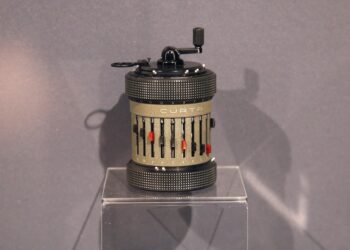
Beyond traditional art and culture, Liechtenstein is also home to some more peculiar and niche cultural attractions.
First up in Schaan’s Calculator and Typewriter Museum. The centre exhibits more than 250 items that tell the story of – you guessed it – calculators and typewriters, with history dating back more than 150 years. It’s also home to the smallest ever calculator, invented in Liechtenstein.
Whereas in Schellenberg, the Liechtenstein FarmhouseMuseum is housed within a 500-year-old traditional wooden farmhouse. The museum showcases the lifestyle of local farming communities throughout history and up to the 20th century. The building itself is an excellent example of farming craftmanship.
In Triesen, the Lawena Museum looks at the history of electrical items. From washing machines to the electric stoves, its displays explore the development of electric domestic equipment over the past century.
12. Take a road trip around Liechtenstein’s small towns

The benefit of Liechtenstein being so small is that you can explore many of its small towns with incredible ease, especially if getting around by car.
Unique qualities can be found in each town, but perhaps one of the best is Nendeln, due to its potting heritage. Schädler Pottery is the oldest craft workshop in the country and has produced stoneware crockery here since 1836. Visitors are invited to watch the remarkable process of pottery making and ceramic painting, and can have guided tours of the facilities, including the kiln room.
Elsewhere, the 14th-century Pfrundhaus building can be admired in the town of Eschen, whereas Mauren is home to the SammlungMura, a museum housing Liechtenstein’s largest collection of cultural artefacts documenting life and customs in the principality.























 1. Gibraltar & Tangier
1. Gibraltar & Tangier 2. French & Spanish Pyrenees
2. French & Spanish Pyrenees 3. Zürich-Innsbruck
3. Zürich-Innsbruck 4. Vienna-Budapest
4. Vienna-Budapest 5. Helsinki-Tallinn
5. Helsinki-Tallinn